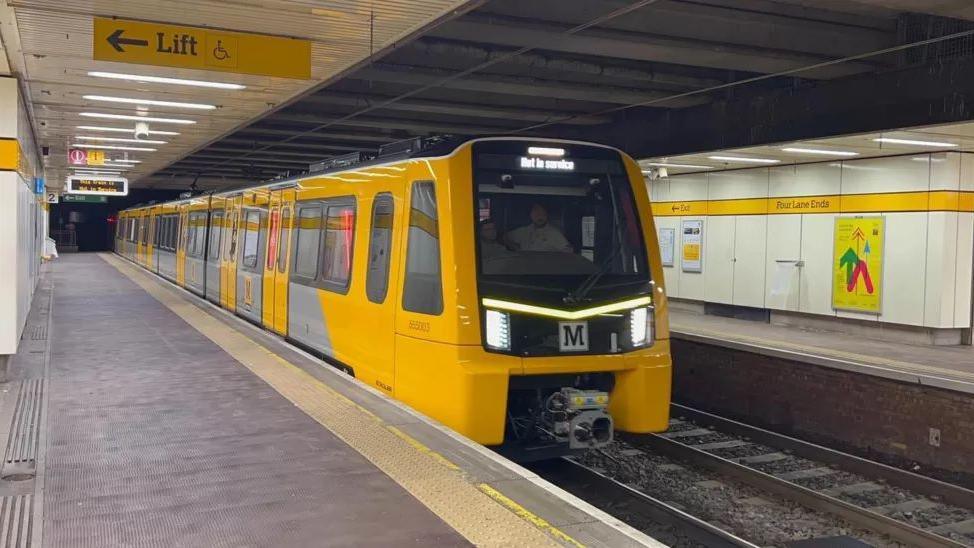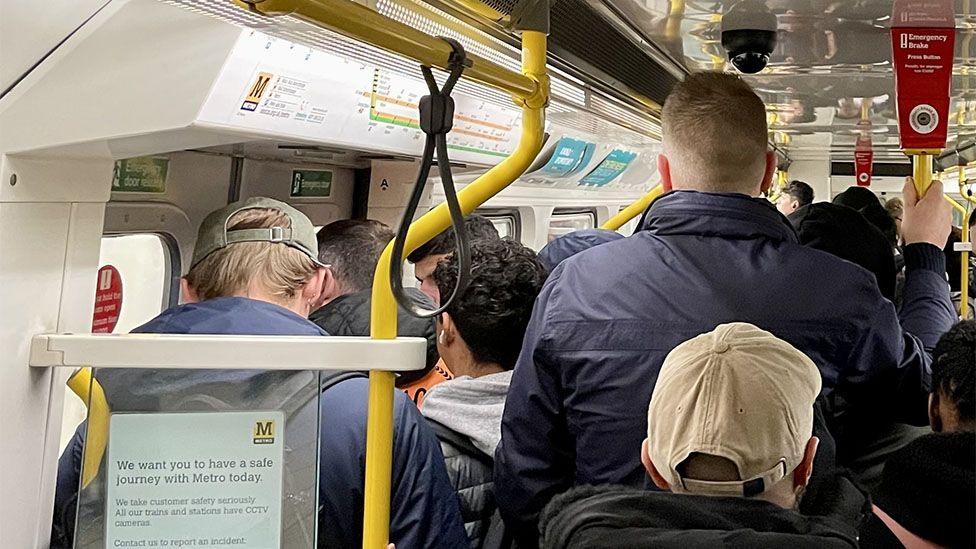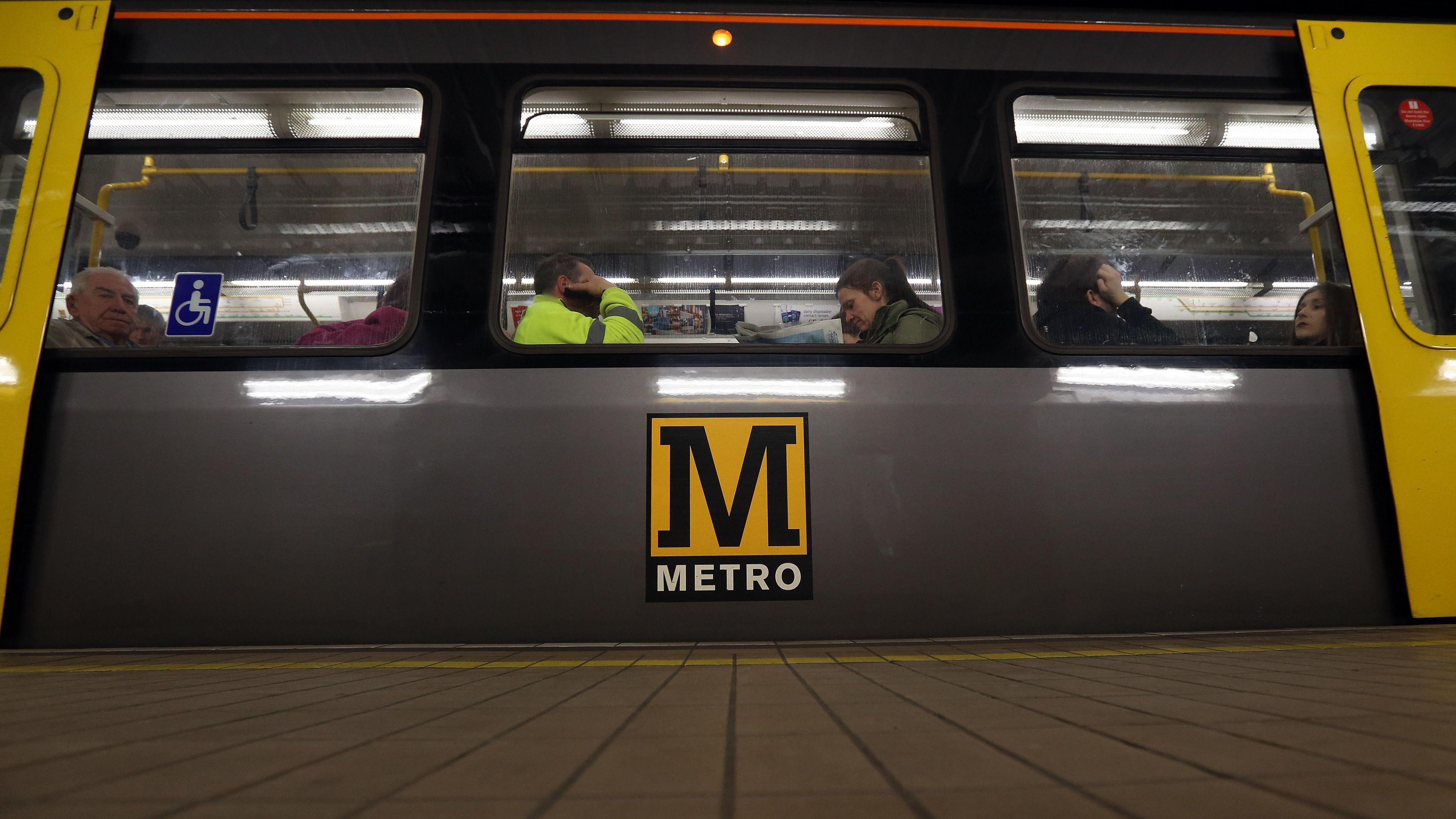Metro tickets set for price hike

Metro fares are set to rise despite recent poor service records
- Published
Fares on the Tyne and Wear Metro are set to increase by 3.4% from April.
The North East Joint Transport Committee has been asked to sign off the increase at a meeting next week.
The proposed rise comes after Metro services slumped to their worst ever performance levels between November and December last year.
Nexus, which operates the train service, said the increase was needed in the face of higher running costs and was below the level of inflation.
Huw Lewis, Nexus' customer service director, said: “Fares do need to increase in order to help us meet the challenge we face with higher Metro running costs.
“Metro is a public service, one that doesn’t make a profit, so we require government support alongside the revenue that we get from fares, all of which goes back into keeping the network running.”
New ticket prices
Councilors will be asked to sign-off the fare increases at a North East Joint Transport Committee meeting on 18 January. The new ticket prices are expected to come into force on 1 April.
On average, tickets will rise by 3.4% but the actual increase varies depending on the ticket, according to the Local Democracy Reporting Service, external.
A two-zone day ticket, which is the Metro’s most purchased fare, will jump 7.7% from £5.20 to £5.60 – but an all-zone day ticket is frozen at £5.90.
The price of weekly, monthly, and annual season tickets will increase by between 4.2% and 8.9%.
Shields Ferry prices will also rise from £3.70 to £3.90.
The planned price hikes have been announced after it was revealed that only 61% of trains ran on time between 12 November and 9 December 2023.
Adverse weather conditions and the Metro's outdated trains have been blamed for the delays.
Follow BBC North East on X (formerly Twitter), external, Facebook, external and Instagram, external. Send your story ideas to northeastandcumbria@bbc.co.uk.
Related topics
More stories from BBC North East and Cumbria
- Published10 January 2024

- Published5 January 2024
